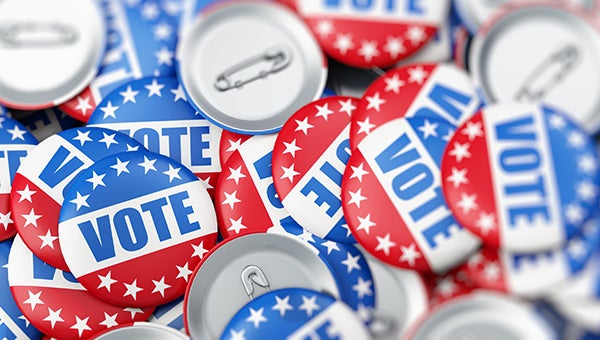Mississippi expands curbside voting, sets absentee ‘cure’
Published 2:25 pm Tuesday, October 20, 2020
JACKSON (AP) — Mississippi is expanding access to curbside voting for people with symptoms of COVID-19 and setting a new process to let voters correct, or “cure,” minor discrepancies with signatures on absentee ballots.
The changes are being made after voting-rights groups sued the state in federal court. U.S. District Judge Daniel P. Jordan signed an order Tuesday that ends the lawsuit. The plaintiffs obtained some of the changes they sought, but not all.
A new rule issued by Secretary of State Michael Watson says curbside or open-air voting must be made available to people showing signs of COVID-19, including coughing, vomiting, headaches, fever, sore throat, congestion, or loss of taste or smell.
Also, election officials must notify a voter about any problem with his or her signature on an absentee ballot, and the voter must be given a chance to correct it, according to groups that sued the state. Officials must offer the voter an “absentee cure form” by mail, email or fax within one business day. The voter has 10 calendar days after the election to correct the issue so the ballot can be counted.
Jennifer Nwachukwu, an attorney with the Lawyers’ Committee for Civil Rights Under Law, said in a statement that the new procedures should help ensure that absentee ballots are not “arbitrarily rejected.”
“Just because a record number of voters in Mississippi will vote by mail this year does not mean there needs to be a record number of disenfranchised voters,” Nwachukwu said. “This is a key victory in protecting the integrity of our election and ensuring the voice of the people is heard.”
Mississippi requires absentee ballot applications to be notarized. The state also requires most people to provide an excuse to vote absentee, such as being out of town on Election Day. The plaintiffs argued those two requirements are unconstitutional. However, those procedures are not being changed.
The lawsuit was filed in August by attorneys from the Lawyers’ Committee for Civil Rights Under Law and the Southern Poverty Law Center on behalf of three Mississippi residents, the League of Women Voters of Mississippi and the Mississippi State Conference of the NAACP. It says Mississippi election laws could force people to choose between their health and their constitutional right to vote. It also said Watson and Attorney General Lynn Fitch “have failed to take necessary steps to protect Mississippi voters’ fundamental right to vote despite the public health risks of voting in person during the COVID-19 pandemic.”
The Associated Press left phone messages for Watson and his spokeswoman on Tuesday, seeking comment about the election procedure changes.
Caren Short, senior staff attorney for the Southern Poverty Law Center, said in a statement that people who cast absentee ballots by mail should include a phone number and email address so election officials can reach them if there are questions about the signature.
“It is critical that every Mississippi voter can cast their ballot safely and have their vote counted,” Short said.
Mississippi does not allow widespread early voting. Instead, state law says absentee voting is available to anyone 65 or older, or to voters of any age who are permanently disabled or will be out of their home county on Election Day. People who have to work on Election Day when the polls are open also are allowed to vote absentee.
Legislators tweaked the law this year with provisions that expire at the end of 2020. Those allow absentee voting by someone with a temporary or permanent disability that may include “a physician-imposed quarantine due to COVID-19” or by a person who is “caring for a dependent that is under a physician-imposed quarantine due to COVID-19.”






